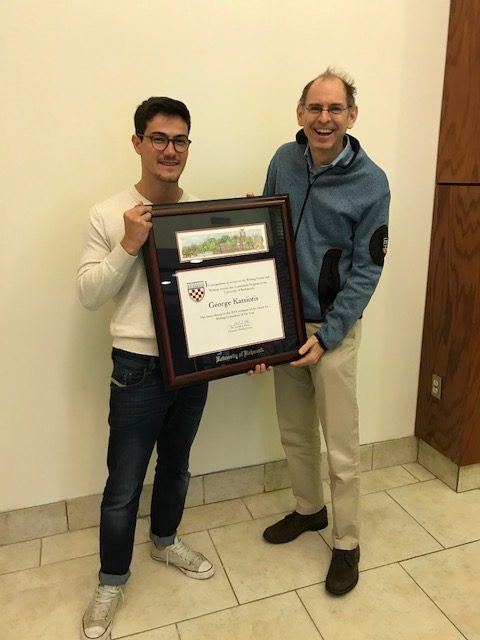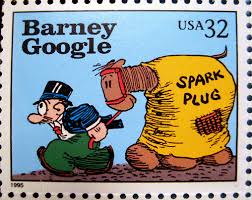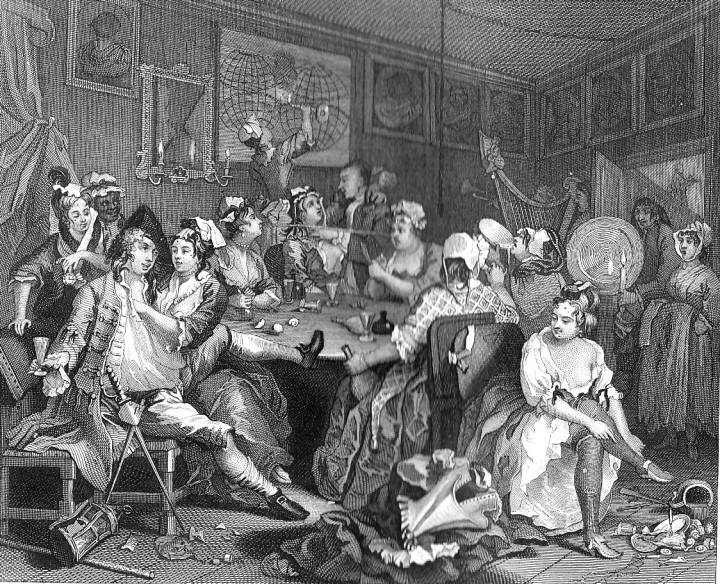 Each year, I ask faculty to nominate a Writing Consultant who has gone the extra mile helping writers do their best work. We then give an award to a graduating senior. I want to thank Dr. Erik Craft in Economics for nominating our winner; he also nominated George last year!
Each year, I ask faculty to nominate a Writing Consultant who has gone the extra mile helping writers do their best work. We then give an award to a graduating senior. I want to thank Dr. Erik Craft in Economics for nominating our winner; he also nominated George last year!
In this year’s nomination, Professor Craft noted of George:
He has been consistently proactive, making numerous good suggestions, pushing me toward using new technologies to edit papers. My students report the value of meeting with him. He is flexible enough to accept my timelines for turning around papers. He volunteers to come to class to be introduced to the students. Last year, he met more often with one student who particularly required assistance, in part because English was not her mother tongue.
George, a native of Greece, has a double major in Leadership Studies and Political Science. He’s minoring in Economics, which made him a perfect partner for the students in Dr. Craft’s First-Year Seminar, “Inequality and Ethics.” The course description notes that FYS students study “income inequality, but we will investigate inequality in lifespan and education as well.”
After graduation, George will be the Supervisor of a YMCA camp in Thessaloniki, Greece, with many employees and over 400 youngsters to manage!
George met Richmond students to review drafts of essays he received in advance, and as with all Consultants, he followed a somewhat nondirective pedagogy of not proofreading. Instead, he helped writers find their central arguments if those were not clear, identify systematic errors at the local and global scale; he made a representative correction of a repeated mistake in order to teach each writer to self-correct other instances.
In addition to his work for our program, George worked as a Peer Advisor and Mentor since his first year at Richmond. He also helped in the Office of Admissions with the International Admissions team.
We want to thank all our graduating Consultants for their hard work and we wish them the best in the big world beyond our campus gates.









